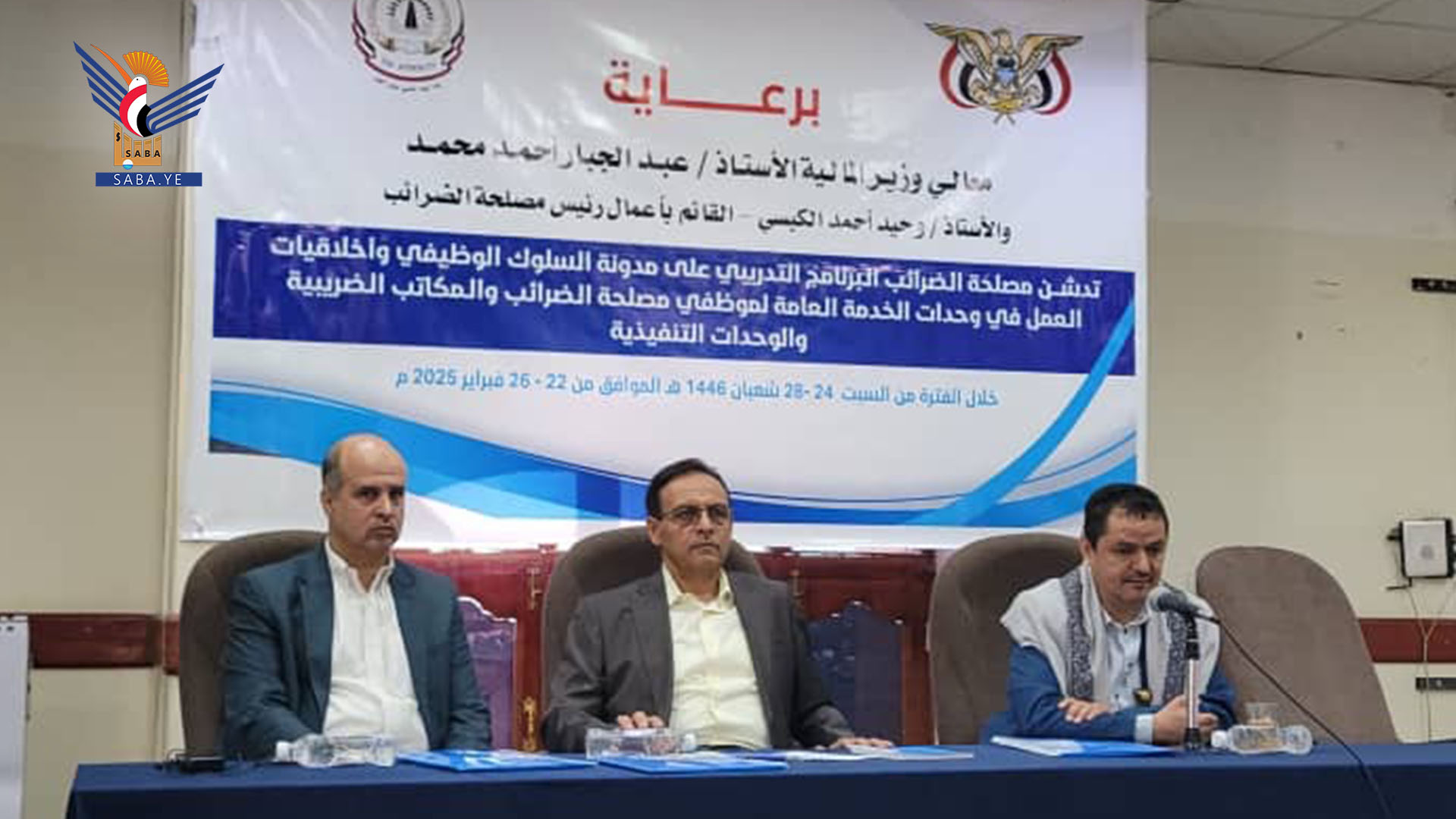
Sana'a - Saba:
The Tax Authority commenced on Saturday a training program on the Code of Professional Conduct and Work Ethics for its employees, tax offices, and executive units.
Acting Head of the Authority Wahid al-Kebsi emphasized the importance of the code, which outlines principles, values, and ethical rules derived from the faith identity, to regulate performance in public service units.
He stated that the code addresses decades of administrative shortcomings, including randomness, corruption, and negligence. The code translates the directives of revolution's leader Abdulmalik al-Houthi, and aims to reform state institutions, eradicate corruption, and build an independent Yemen.
Al-Kebsi highlighted the code's objectives, such as achieving transparency, integrity, and improving public service delivery. He stressed the commitment to implementing the code and enhancing transparency between the tax administration and taxpayers.
Al-Kebsi cited completed tax projects, including the issuance of transparent service guides, and emphasized that the code is a guarantee for improved performance and discipline.
Undersecretary of the Ministry of Civil Service and Administrative Development Abdullah Haidar underscored the importance of employee commitment to the code, reflecting their religious and professional culture and enhancing integrity.
Haidar noted that the training program is part of the Ministry's training plan for public service units and praised the Tax Authority's efforts in preparing tax guidelines.
The Tax Authority commenced on Saturday a training program on the Code of Professional Conduct and Work Ethics for its employees, tax offices, and executive units.
Acting Head of the Authority Wahid al-Kebsi emphasized the importance of the code, which outlines principles, values, and ethical rules derived from the faith identity, to regulate performance in public service units.
He stated that the code addresses decades of administrative shortcomings, including randomness, corruption, and negligence. The code translates the directives of revolution's leader Abdulmalik al-Houthi, and aims to reform state institutions, eradicate corruption, and build an independent Yemen.
Al-Kebsi highlighted the code's objectives, such as achieving transparency, integrity, and improving public service delivery. He stressed the commitment to implementing the code and enhancing transparency between the tax administration and taxpayers.
Al-Kebsi cited completed tax projects, including the issuance of transparent service guides, and emphasized that the code is a guarantee for improved performance and discipline.
Undersecretary of the Ministry of Civil Service and Administrative Development Abdullah Haidar underscored the importance of employee commitment to the code, reflecting their religious and professional culture and enhancing integrity.
Haidar noted that the training program is part of the Ministry's training plan for public service units and praised the Tax Authority's efforts in preparing tax guidelines.



